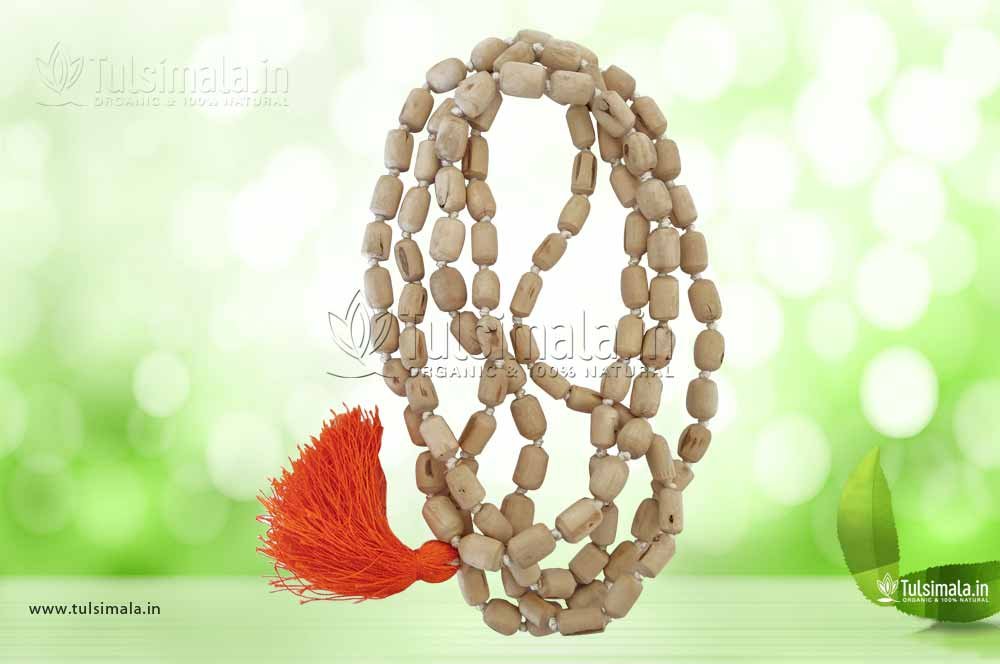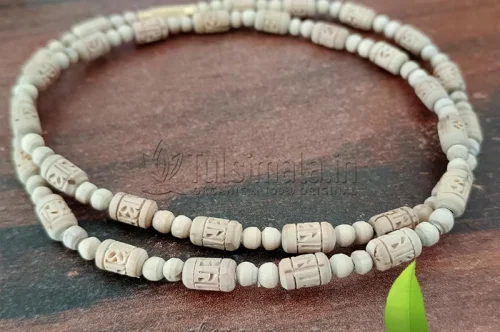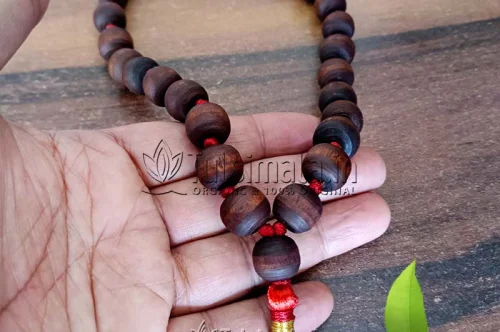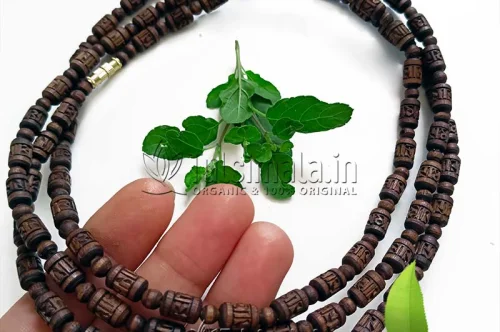Tulsi’s History and Mythology in India

Tulsi in Sanskrit means “one that is incomparable or matchless”. Tulsi was recognized thousands of years ago by ancient Rishis to be one of India’s greatest healing herbs.
They saw this herb as so good for health and healing that it was declared as a God in itself. Tulsi is a herb with its own mythological background.
It is supposed to be beloved of Lord Krishna, a reincarnation of Lord Vishnu. Tulsi was then established as one of the eight indispensable items in any Vedic worship ritual to ensure that every house and temple had at least one Tulsi bush in its proximity.
Still today Tulsi can be found planted in most homes in India and is the most respected and honored herb due to its continuing importance in healing, religion, spirituality, culture, and decorative aesthetics.
It is so readily found now even in the West that one of its names is Sulabha ‘the easy obtainable on Tulsi has always been known for Ayurvedic properties, and in this regard, it can give you relief from cold, flu, Asthma, sore throat too.
Highlight on the benefits of wearing Tulsi and Original Tulsi Mala Wearing
Pharmacological Actions
Several medicinal properties have been attributed to different parts of the Tulsi plant e.g. leaves, flowers, stem, root, seeds, etc. are known to possess therapeutic potentials and have been used by traditional medical practitioners as expectorant, analgesic, anticancer, antiasthmatic, antiemetic, diaphoretic, antidiabetic, antifertility, hepatoprotective, hypotensive, hypolipidemic and antistress agents.
Tulsi has also been used in the treatment of fever, bronchitis, arthritis, convulsions, etc. The following section discusses its various therapeutic uses in medicine and dentistry.
Buy Original Tulsi Mala from Vrindavan Mathura India Shop Now
MEDICAL USES OF TULSI
Gastrointestinal Disorders
Aqueous decoction of Tulsi leaves is given to patients suffering from gastric and hepatic disorders. Herbal preparations containing Ocimum sanctum have been suggested to shorten the course of illness, clinical symptoms, and biochemical parameters in patients suffering from viral hepatitis.
Effective in increasing the peristaltic movements of the GI tract. It is helpful in improving appetite. Also, have some mild laxative properties, therefore, helping in the evacuation of the bowel and maintenance of a healthy bowel. The juice of fresh leaves is also given to patients to treat chronic fever, dysentery,
hemorrhage, and dyspepsia. Tulsi leaves also check to vomit and has been as anthelmintic. Gastric ulceration and secretion are reported to be inhibited by Tulsi in albino rats.
Eye (Ocular) Disorders
The leaf juice of Ocimum sanctum along with Triphala is used in Ayurvedic eye drop preparations recommended for glaucoma, cataract, chronic conjunctivitis, and other painful eye diseases.
Cardiovascular Disorders
It has beneficial effects on cardiac diseases and the weakness resulting from the various cardiac disorders. It even reduces the level of blood cholesterol. Eugenol (extracted from Tulsi leaves) has been well shown to possess the vaso-relaxing action on rabbit arterial tissue indicating its therapeutic importance as a vasodilator.
Respiratory Disorders
Tulsi is very effective in treating the common cold. A decoction of the leaves, with honey and ginger, is an effective remedy for bronchitis, bronchial asthma, influenza, cough, and cold. For immediate relief in
cases of Influenza the decoction of the leaves, cloves, and common salt also gives immediate relief within case of influenza. Tulsi is an important constituent of many Ayurvedic cough syrups and expectorants. It helps to mobilize mucus in bronchitis and asthma thus is very beneficial for the maintenance of a very healthy respiratory passage. Chewing Tulsi leaves relieves cold and flu.
Water boiled with Tulsi leaves is taken as to drink in case of sore throat. This water can also be used for the purpose of gargles.
Renal Disorders
Tulsi has strengthening effects on the kidney. In cases of renal stone the juice of Tulsi leaves and honey, if taken regularly for 6 months will expel them through the urinary tract. Leaves and seeds of Tulsi plants have been reported to reduce blood and urinary uric acid level in albino rabbits and possess diuretic properties.
The fresh leaves and flower tops of the Ocimum sanctum have been used as an antispasmodic agent (as a smooth muscle relaxant). The seeds are mucilaginous and demulcent
and are given in disorders of the genitourinary system. Dermatological Disorders
Applied locally, Tulsi juice is beneficial in the treatment of ringworm and other skin diseases. It is also very beneficial in skin disorders such as leucoderma.
Psychological Disorders
Tulsi leaves are regarded as an “adaptogen” or antistress. Recent studies have shown that leaves provide its user with significant protection against stress. Even healthy persons can chew 12 leaves of Tulsi, twice a day to prevent stress.
Note: Buy original tulsi mala by visiting our website www.tulsimala.in or you can click the below links
 English
English Hindi
Hindi








